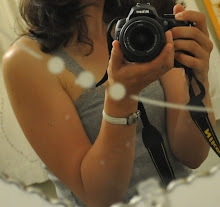Gazing
 1973: On my grandmother's couch
1973: On my grandmother's couch
The worst was the longest trip I have ever made, the trip to the funeral. 7000 kilometers, and each one a fresh new reminder of the cataclysm, the irreparable tectonic shift in the world; each one a tireless recreation of that first abysmal shock after you get the news. Instead of spending 50 minutes in Paris, I waited seven endless hours for the connecting flight to Belgrade, since the flight from Montreal was too late. With a handful of other stranded ex-Yugoslavs converging in Charles De Gaulle from all ends of the world, I wandered around the airport aimlessly, stuck. In the process, I got to know a young girl from Belgrade whose face was twisted in frustration and streaked with tears and who claimed this was the second time Air France "had done it to her," and an elderly woman in her late fifties who was returning home (in Leskovac?) after an extended stay with her son in the States. Tall, thin, with graying hair and long narrow feet, she was the quiet, kind type of the provincial Serbian woman, the one who's the perfect and favourite aunt. The three of us sat down to have a cup of coffee, and while the young girl was talking on the phone to her mother who was supposed to pick her up, the woman asked me why I was going back. When I said I was going to my mother's funeral, there was no evident change in her look or her posture; she simply started talking about her own family and from then on, stayed close to me wherever I went. Even when, after the 7-hour wait, we were finally about to board the new plane, and they wouldn't let me in since the incomptent transfers clerk had made a mistake with my new ticket earlier that day, and I lost it and started yelling and crying, she was right next to me, and even though she spoke no English or French, somehow demanded with her whole body, her entire presence, that they put me on that plane. In the end they did, and two hours later when we were saying goodbye next to the baggage belt at Belgrade Airport, she only said, "Be brave, dear." I nodded wordlessly and walked away, loving her for saying it, but knowing that I wasn't. Brave. Outside, the same Belgrade heat that had seen me off only 5 days earlier opened its arms, not having anything else to offer in welcome. In a strangely hushed moment, when all the airplane engines and the cruising taxis fell silent, there was only the slow chirping of a lonely cricket in the uncut grass.
* * * * * * *
Summers in Montreal are beautiful. At night, in the car, while Martin is opening the garage door outside, I unfasten my seatbelt and look at the dashboard of this Japanese-made car. The sign marked "Passenger" starts to blink with alarm and urgency. I put my left forefinger over it, and look at myself, flashing orange around the fingertip.
 "1961. At the window of the hotel"
"1961. At the window of the hotel"











